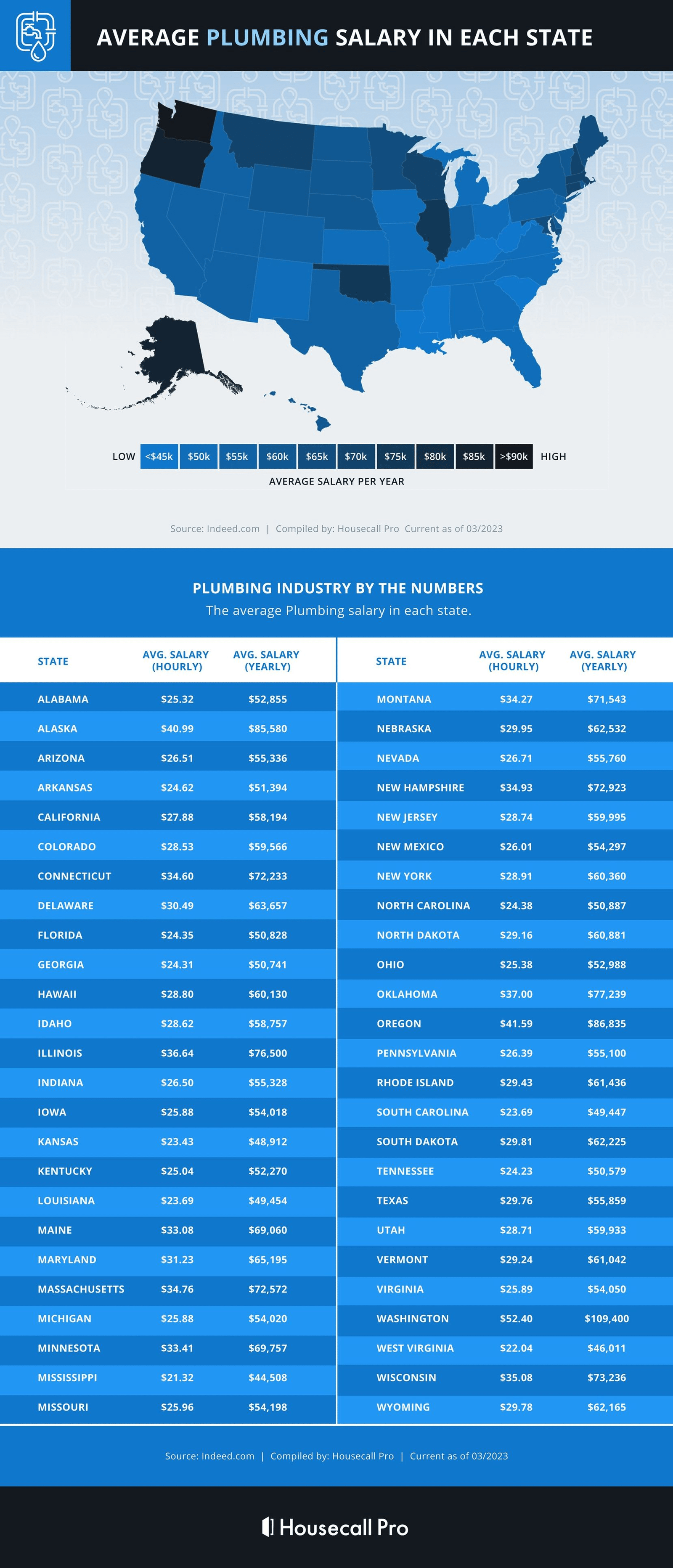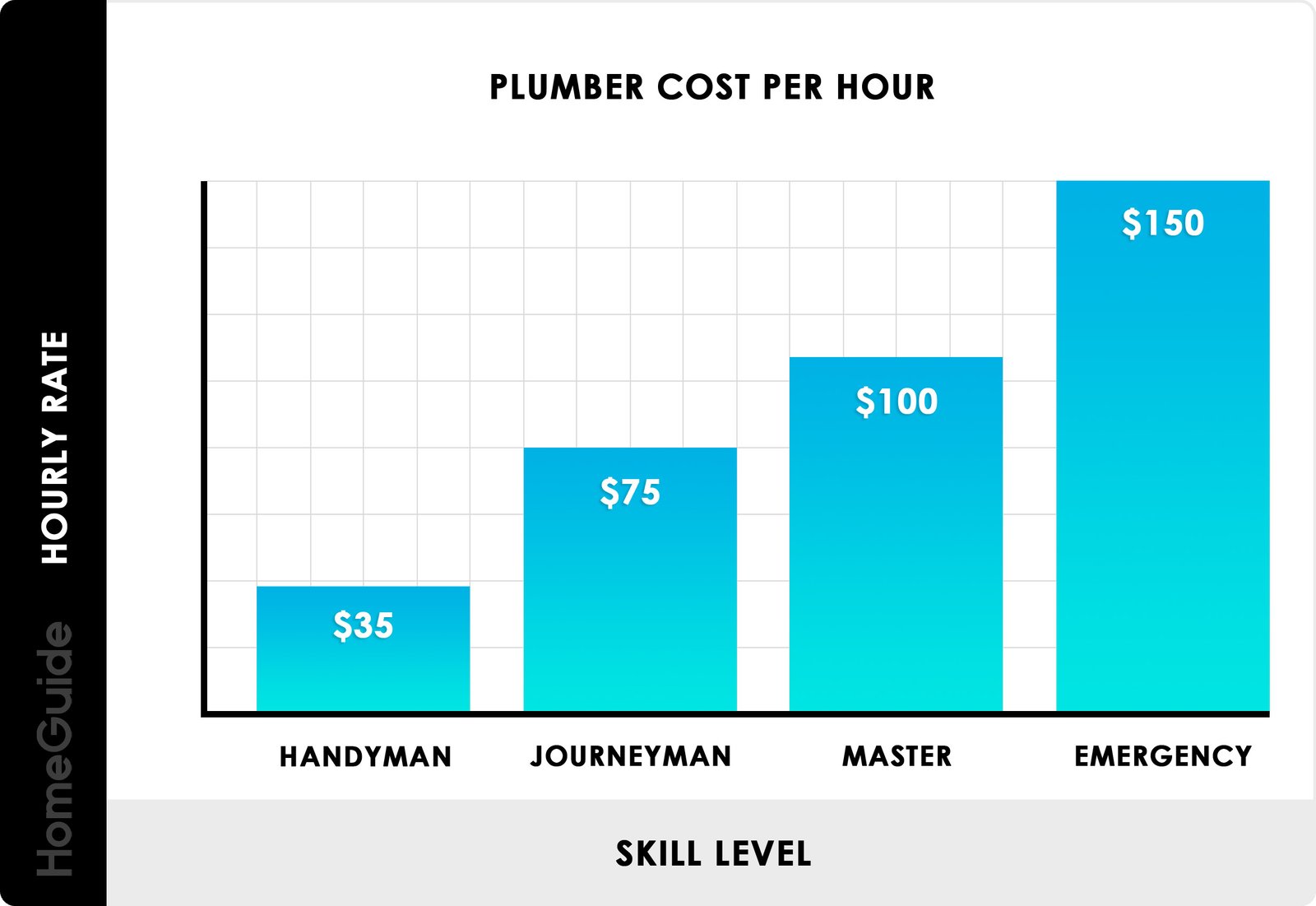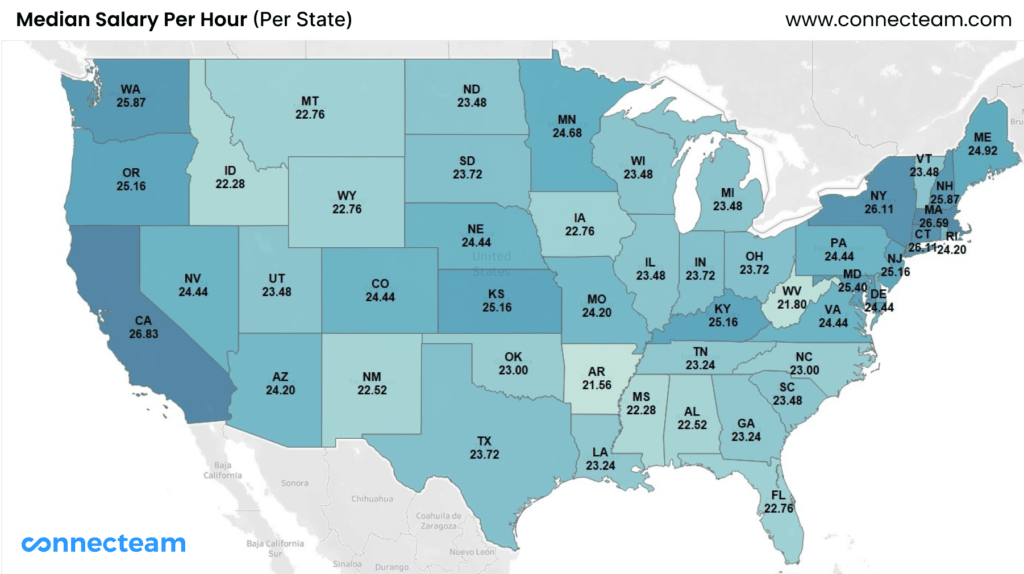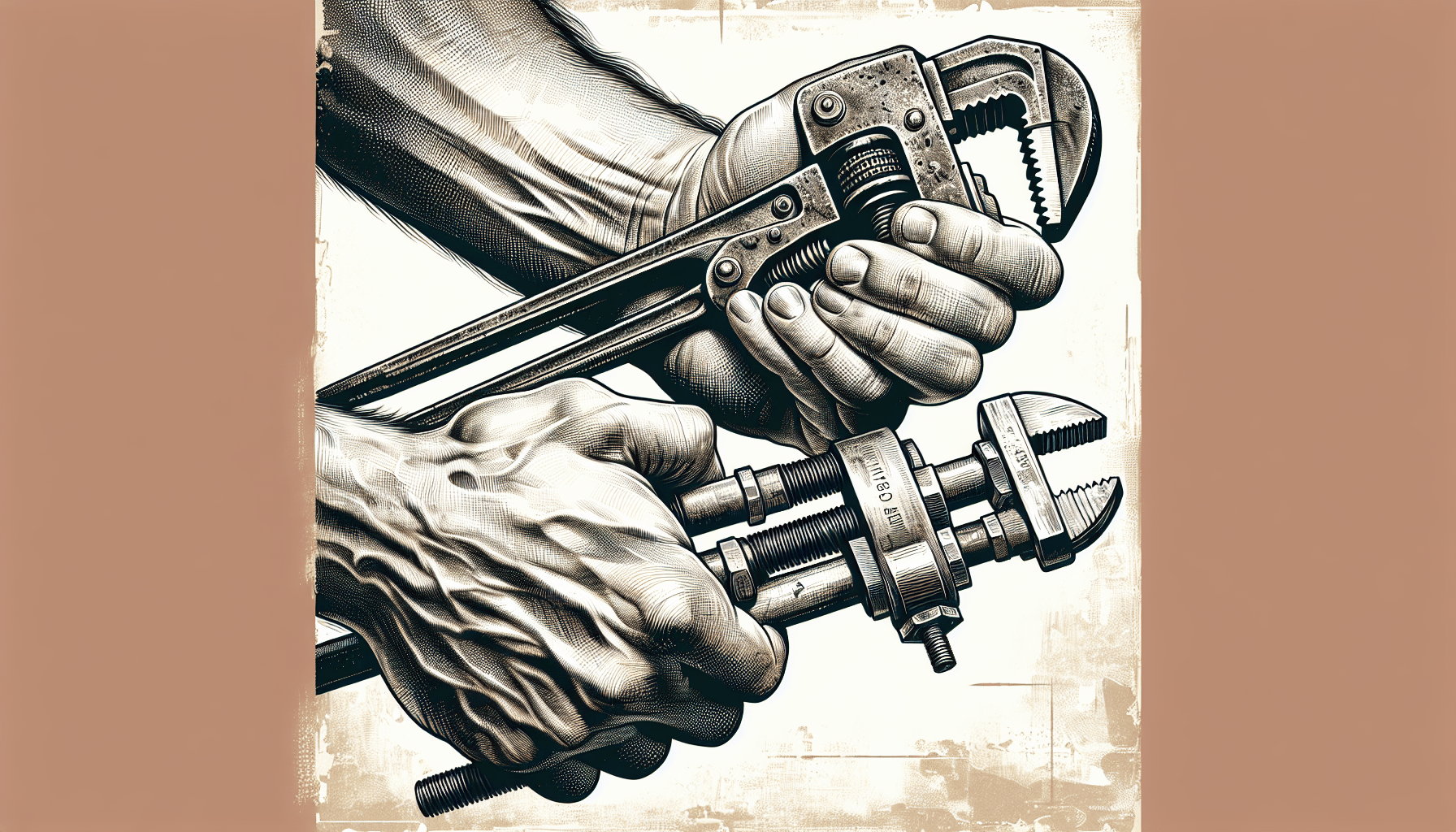Have you ever wondered how much plumbers make an hour? In the ever-growing field of plumbing, it’s an important question for both aspiring plumbers and those in need of their services. Plumbing is a skilled profession that requires technical knowledge and expertise, and as a result, plumbers can command a decent salary for their work. In this article, we will explore the factors that determine a plumber’s hourly rate, providing valuable insights into their earnings potential in this rewarding career. Whether you’re considering a career in plumbing or simply curious about the profession, read on to discover how much plumbers really make an hour.
Average Plumbers’ Salary
Plumbers are essential professionals who play a vital role in ensuring the smooth functioning of our homes and businesses. If you’re considering a career in plumbing or are simply curious about the earning potential in this field, it’s important to have a clear understanding of the average plumbers’ salary. In this article, we will explore various factors that influence a plumber’s salary, including experience, location, and specialization. We will also compare the earnings of plumbers to other professions and discuss the benefits and perks that come with being a plumber. So, let’s dive in!
Overall Average Salary
The overall average salary of plumbers varies depending on several factors, but according to recent data, the average annual salary for plumbers in the United States is around $58,000. This figure may vary based on the plumber’s location, level of experience, and expertise. It’s important to note that this is just an average, and plumbers at both ends of the spectrum can earn significantly more or less.
Average Hourly Wage
If you’re curious about how much plumbers make per hour, the average hourly wage for plumbers in the United States is approximately $27.50. However, this figure can differ based on factors such as geographical location, the complexity of the job, and the plumber’s experience level. It’s also worth mentioning that plumbers often have the opportunity to earn additional income through overtime pay and bonuses.
Factors Affecting Salary
Several factors influence a plumber’s salary, and understanding these factors can help you gauge your earning potential in the field. One of the most significant factors is experience. Entry-level plumbers typically earn a lower salary compared to those with several years of experience under their belts. Additionally, the demand for plumbers in a specific region can impact the average salary, with areas experiencing a higher demand often offering higher wages. The type of plumbing specialization can also affect earnings, as some sectors, such as government positions, may offer higher salaries compared to others.
Salary Range for Plumbers
Now let’s delve into the salary range for plumbers, exploring the lowest and highest paying regions, as well as the variations in salary within the profession.
Lowest Paying Regions
While plumbing can offer a lucrative career path, it’s important to note that there are regions where plumbers may earn a lower income compared to other areas. Locations with a lower cost of living and fewer plumbing opportunities may result in a lower average salary for plumbers. However, it’s possible for skilled plumbers to thrive in these regions by capitalizing on niche markets and providing specialized services.
Highest Paying Regions
On the other hand, certain regions in the country offer plumbers substantial earning potential. Metropolitan areas with a high demand for plumbing services and a higher cost of living generally provide plumbers with better salaries. These regions often have a more robust economy and a greater need for skilled professionals, leading to increased wages for plumbers.
Variations in Salary
Within the plumbing profession, there are variations in salary even within regions. Plumbers who possess advanced certifications or specialize in complex plumbing systems, such as pipefitters and steamfitters, can often command higher salaries compared to those with more general expertise. Additionally, plumbers who work in the construction industry or the government sector may have different salary structures compared to those in residential or commercial plumbing.

This image is property of www.housecallpro.com.
Plumbers’ Wage by Experience
Experience is a crucial determinant when it comes to a plumber’s salary. Let’s take a closer look at how entry-level, mid-career, and experienced plumbers fare in terms of earnings.
Entry-level Plumbers
As with any profession, entry-level plumbers typically start with a lower salary compared to their more experienced counterparts. This is generally due to their limited practical experience and the need to build their skills and knowledge in real-world plumbing scenarios. However, entry-level plumbers often benefit from on-the-job training and mentorship, which can accelerate their learning curve and increase their earning potential over time.
Mid-career Plumbers
Plumbers in the mid-career phase, typically with several years of experience, tend to earn a higher salary compared to entry-level plumbers. At this stage, they have gained a solid foundation of knowledge and skills, allowing them to tackle more complex plumbing projects. With their expertise and proven track record, mid-career plumbers can negotiate better compensation packages and may also have the opportunity to specialize in specific areas, further increasing their earning potential.
Experienced Plumbers
Experienced plumbers, who have spent a significant amount of time honing their craft, are often in high demand and can command higher salaries. These seasoned professionals have tackled a wide range of plumbing challenges and have built a reputation for their expertise. With their wealth of experience, they may earn a premium wage and enjoy additional perks, such as supervisory roles or private contracts with high-profile clients.
Specializations in Plumbing
The plumbing profession offers several exciting specializations that can further enhance a plumber’s earning potential. Let’s explore a few key areas of specialization within the plumbing industry.
Pipefitters and Steamfitters
Pipefitters and steamfitters are specialized plumbers who work on industrial piping systems involving high-pressure or high-temperature substances. Due to the complexity and potential risks involved, these professionals typically earn higher salaries compared to general residential or commercial plumbers. Their expertise in installing, repairing, and maintaining intricate piping systems is in high demand in sectors such as manufacturing, power generation, and chemical processing.
Plumbers in Construction Industry
Plumbers involved in the construction industry also have unique earning opportunities. Construction plumbers, often referred to as rough-in plumbers, play a crucial role in the early stages of construction projects, where they install the plumbing infrastructure before the walls and flooring are finished. These plumbers can earn higher wages due to the specialized skills required to navigate complex building layouts and blueprints.
Plumbers in Government Sector
Working as a plumber in the government sector can provide stability and potentially higher salaries compared to other areas of the industry. Government positions often come with attractive benefits and retirement plans, making them desirable for those seeking long-term job security. Plumbers in this sector may work in government-owned buildings, schools, hospitals, or military bases, ensuring their plumbing systems are in top condition.

This image is property of static.homeguide.com.
Salary Comparison with Other Professions
To gain a comprehensive understanding of a plumber’s earning potential, it’s insightful to compare their salaries to those of professionals in other related fields. Let’s take a look at the salary comparisons between plumbers, electricians, carpenters, and HVAC technicians.
Plumbers vs. Electricians
Plumbers and electricians are both skilled tradespeople who play critical roles in the construction and maintenance of buildings. While their salaries can be comparable in some regions, the average salary for an electrician is slightly higher than that of a plumber. This is due to the specific expertise and specialized skills required in electrical work. However, it’s important to note that both professions offer attractive earning potential and have their own unique benefits.
Plumbers vs. Carpenters
Carpenters, like plumbers, are integral to the construction industry, specializing in the installation and repair of structures made of wood and other materials. When comparing the salaries of plumbers and carpenters, there is often parity between the two professions. The earnings can vary based on specialization and demand in a particular region, but overall, these skilled trades offer similar earning potential.
Plumbers vs. HVAC Technicians
HVAC (Heating, Ventilation, and Air Conditioning) technicians are responsible for the installation, maintenance, and repair of heating and cooling systems. When comparing salaries, HVAC technicians often earn similar or slightly higher wages than plumbers. The demand for HVAC technicians is driven by the need for climate control in residential and commercial buildings, making this profession a viable alternative for those interested in related trades.
Benefits and Perks for Plumbers
Apart from salary, plumbers often enjoy a range of benefits and perks that can further enhance their overall compensation package. Let’s explore some of the common benefits provided to plumbers by employers.
Health Insurance
Many plumbing companies provide health insurance coverage for their employees, ensuring that plumbers have access to critical medical care. This can include coverage for routine check-ups, hospital visits, and prescription medications. Health insurance is a valuable benefit that helps protect the well-being of plumbers and their families.
Retirement Plans
Retirement plans, such as 401(k) options, are often offered by plumbing companies as part of their employee benefits package. Plumbers can contribute a portion of their earnings towards their retirement fund, and in some cases, companies may offer matching contributions. This allows plumbers to build a nest egg for the future and save towards a comfortable retirement.
Vacation Time
Plumbing companies commonly provide paid vacation days to their employees, allowing plumbers to take time off and recharge. Paid vacation time can help plumbers strike a healthy work-life balance and spend quality time with family and friends. The number of vacation days typically increases with years of service, providing an incentive for plumbers to stay with a company long-term.
Bonuses and Overtime Pay
Plumbing companies may offer bonuses and overtime pay to reward plumbers for exceptional performance or for working beyond their regular hours. Bonuses can be based on factors such as meeting targets, customer satisfaction, or completing projects ahead of schedule. Overtime pay ensures that plumbers are compensated fairly for any additional time spent on the job, further boosting their earnings.

This image is property of static.homeguide.com.
Work Environment and Schedule
The work environment and schedule for plumbers can vary depending on various factors. Let’s explore the different work environments plumbers may encounter and the scheduling options available to them.
Plumbing Companies
Many plumbers choose to work for plumbing companies where they can enjoy the benefits of a structured work environment. Plumbing companies often handle a wide range of projects, including residential, commercial, and industrial plumbing. This setting typically provides plumbers with a stable work routine, steady income, and a supportive team of colleagues.
Self-Employment
Some experienced plumbers prefer the freedom and flexibility of self-employment. By starting their own plumbing business, they have the opportunity to set their own rates, choose clients and projects that align with their expertise, and take control of their schedule. While self-employment can come with added responsibilities and risks, it can also provide plumbers with a higher earning potential and the ability to shape their own career.
Work Schedule
The work schedule for plumbers can vary greatly depending on the specific job requirements and industry demands. Plumbers may work on a full-time or part-time basis, with full-time hours usually falling within the typical 40-hour workweek. However, plumbers may also need to be available for on-call shifts, especially for emergency plumbing services. Flexibility in work schedule is often appreciated by plumbers, as it allows them to balance both professional and personal commitments effectively.
Tips for Increasing Plumbers’ Earnings
If you’re a plumber looking to enhance your earning potential, consider the following tips that can help you take your career to the next level.
Continuing Education and Certifications
Continuing education is crucial for staying up to date with the latest plumbing techniques, technology, and best practices. By pursuing additional certifications and attending relevant workshops or seminars, plumbers can demonstrate their commitment to professional growth and improve their chances of earning higher salaries. Employers often value plumbers who continuously invest in learning and show a dedication to improving their skills.
Expand Skill Set
While specializing in a specific area of plumbing can lead to higher earnings, diversifying your skill set can also open doors to new opportunities. By expanding your knowledge and abilities in various aspects of plumbing, such as pipefitting, gas line installation, or solar water heating, you can position yourself as a versatile plumber capable of handling a broader range of projects. This versatility can make you more valuable to employers and clients alike, ultimately translating into higher earning potential.
Work in High-Demand Areas
Geographical location plays a significant role in a plumber’s earning potential. Consider exploring opportunities in regions or cities with a high demand for plumbing services. These areas may have a shortage of skilled plumbers, resulting in higher wages and more job opportunities. Conduct research and keep an eye on market trends to identify locations where your expertise may be in high demand.
Business Development
For plumbers who aspire to branch out into self-employment, investing time and effort into business development can significantly impact their earnings. Building a strong network of clients, marketing your services effectively, and delivering exceptional customer service are essential aspects of running a successful plumbing business. By focusing on these areas and consistently delivering quality work, you can attract more clients, improve your reputation, and increase your earning potential.

This image is property of static.zippia.com.
Job Outlook for Plumbers
The demand for plumbers shows no signs of slowing down, making it an appealing career choice for individuals seeking stability and career growth. Let’s explore the job outlook and career growth opportunities for plumbers.
Demand for Plumbers
Plumbing services are a necessity for both residential and commercial properties, leading to a consistent demand for skilled plumbers. Aging infrastructure, new construction projects, and the need for routine maintenance and repairs ensure a steady flow of job opportunities. As more focus is placed on sustainable water management and energy-efficient plumbing systems, the demand for plumbers who specialize in these areas is expected to increase further.
Career Growth Opportunities
Plumbing offers diverse career growth opportunities for those willing to put in the effort to advance their skills and knowledge. Plumbers can progress through various career stages, from apprenticeships to journeyman status, and eventually achieve master plumber certification. This progression often comes with increased responsibilities, higher wages, and the opportunity to mentor and train new plumbers. Additionally, experienced plumbers can expand their career prospects by transitioning into managerial or supervisory roles within plumbing companies or by starting their own successful businesses.
Conclusion
If you’re considering a career as a plumber or are already a part of this integral profession, it’s essential to have a comprehensive understanding of the average plumbers’ salary and the various factors that influence it. Experience, specialization, location, and industry demand all contribute to the earning potential of plumbers. By continuously learning, expanding your skill set, and staying up to date with industry trends, you can enhance your earning potential and seize the numerous growth opportunities available in the plumbing profession. Remember, being a plumber not only provides financial stability but also offers the satisfaction of solving complex problems, contributing to the well-being of communities, and being an essential part of daily life.

This image is property of connecteam.com.





